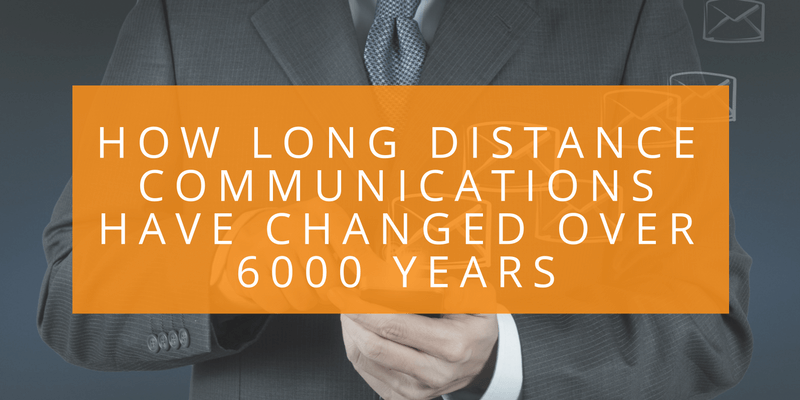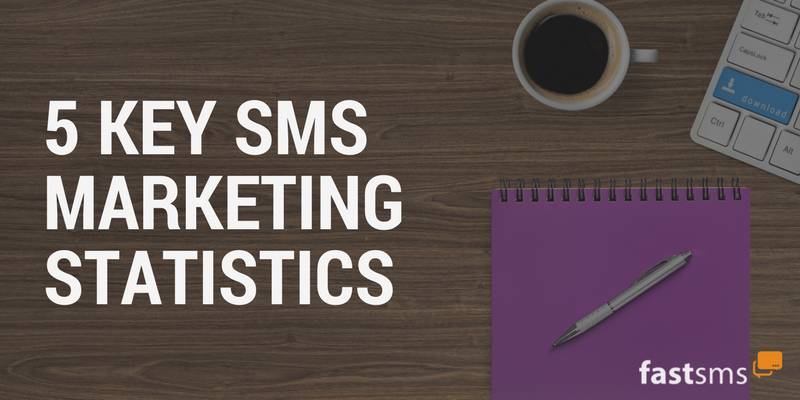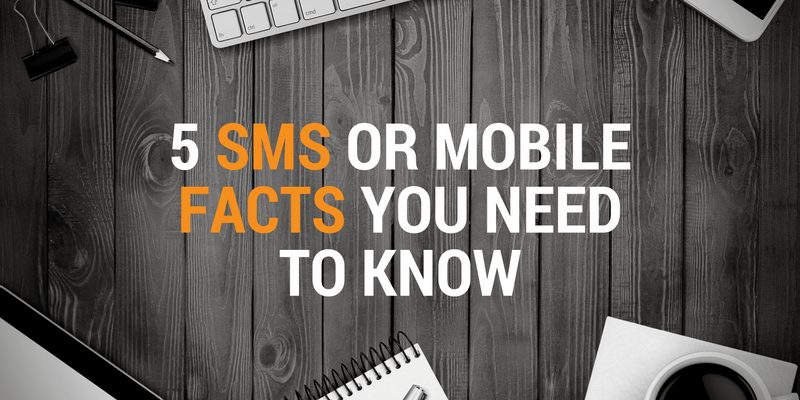24 Key Research Statistics that Prove You Should be Using SMS Marketing

SMS marketing has been a particularly popular way of staying in contact with customers – both potential and existing – since the early 2000s across Europe and some areas in Asia.
It has proved itself to be surprisingly effective and can range from individual messages to text marketing on a large-scale using a cloud-based platform such as FastSMS.
If you find yourself needing to justify putting budget towards SMS marketing or convincing your manager that it’s the right decision for you, here are some key stats to keep in mind for why you should pursue an SMS campaign…
Accessibility
One of the key reasons why SMS marketing is so popular is the fact it is such an accessible and widespread way of contacting people. According to Pew Internet, 97% of Americans use their phone to text every day.
In fact, MBA Online found that over 4.2 billion people send texts worldwide. That’s a huge amount of people actively using the method in which you would be contacting them with.
They are an engaged audience that are used to sending and receiving text messages. It has a very familiar feel for them – so receiving SMS messages wouldn’t come as any great surprise.
Popular Communications
Statistic Brain reports that over 560 billion text messages get sent worldwide every month – and every day (not including app to app), 18.7 billion texts are sent globally. Adding to this, USA today has found that the average adult spends at least 23 hours per week texting.
Nielsen quotes that text messaging is, in fact, the most used data service in the world. Indeed, it’s a marketing opportunity with great potential and with so many text messages flying around the globe each day, hour and minute, it’s the perfect platform to be tapping in to.
Handset Addiction
Not only are millions – make that, billions – of people texting each day, but they’re also addicted to their handsets. Pew Research found that 25% of smartphone owners aged between 18 and 44 claimed they couldn’t recall the last time when they didn’t have their smartphone next to them.
In addition to this, 44% of mobile users have gone to bed with their phone beside them because they feared missing calls, text messages and updates throughout the night. When customers have their phones next to them so frequently, it also means you too have a prime and active audience.
Unlike billboard advertising, in which you might capture someone’s attention for a brief moment, SMS messaging allows for much more constant, intimate engagement. You are reaching people on their handsets in all manners of situations, often when they are relaxing at home and are more open to receiving marketing communications.
Interactions
As a result of how many people send text messages each day and how often users spend on their devices, SMS messaging is a great way of interacting with customers. It is also a method that is highly regarded by the recipients.
In fact, the Direct Marketing Association has found that 44% of consumers prefer to receive details about products and marketing messages through text messages. Meanwhile, RingCentral has found that 78% of phone users would prefer to speak with a business via text than any other method of communication.
When it comes to contacting customers about scheduling or changing appointments or making and confirming reservations, most people prefer text. It offers a very physical form of communication that can be carried around with them wherever they go and referenced when needed.
It is the same as having a paper leaflet or business card but without the worry of losing it – and saves the hassle of trying to make notes while on the phone (in which messages can be misheard or misunderstood).
Gaining Attention
In 2014 The SMS Advantage Report (PDF) conducted by SAP & Loudhouse Research found that 70% of those asked agreed that SMS text messaging was a good way for a business to get their attention.
Part of their success is the fact that text messages have a very high open rate. In fact, Venture Beat claims that the average open rate for a text message is 98%. Forbes has likewise found that within three minutes of being sent, 95% of text messages will have been read.
This is an incredibly strong response for a method of communication with customers – much higher than e-mails, in which people often receive a lot of spam and are used to deleting them before they’ve even read them. SMS messaging is a much quicker and more efficient means of accessing customers as a result.
Effectiveness
Cellit has found that text messages are at least eight times more effective in engaging customers, while eMarketer found that mobile offers get redeemed up to ten times more frequently than print offers.
In November 2015, the Ericsson Mobility Report found that 77% of people will opt into a brand’s SMS messages for coupons or deals, while 50% will sign up for personal alerts. 48% will want to stay in the loop while 33% will be seeking more meaningful content. Finally, 31% sign up because it saves them from having to visit a website, app or physical location for information.
Given how popular SMS messaging is and the many reasons people have for signing up, it’s important to optimise on this with your campaign and offer a diverse and versatile chain of content in which you are tailoring to each of these customer interests and desires.
Building Relationships
SMS messaging is a great way of building a strong and positive relationship with customers, as shown by The SMS Advantage Report – 74% of all those who responded claimed businesses that interacted with them through text messages led to an improved overall impression towards the company.
They also claimed that SMS messages helped towards them feeling as though they are being cared about and like how they can be in control of the services they’re receiving. Part of this comes through being consistent in communications, but not so insistent that it becomes frustrating how often texts are received.
It needs to feel natural for your business and the frequency should reflect how many times you would naturally need to contact them (i.e. a hairdresser messaging weekly might seem a bit excessive when you would only get your hair cut every few months).
Favourite Method of Communication
According to the 2014 Mobile Behaviour Report conducted by Salesforce, 91% of those who opted in to receive text messages found them to be somewhat or very useful. Meanwhile, RingCentral has found that 80% of professionals are currently using texts for business purposes.
Finally, eWeek found that of all other communication channels (including phone and Facebook), texting was rated as the highest contact method for customer satisfaction. Additionally, over one-third of professionals commented that they struggled to go more than 10 minutes without responding to a text.
Get in Touch
It’s time to take advantage of what SMS messaging can bring to your company. Get in touch with FastSMS now to find out how we can help you with business text messaging.
Related Articles
Why Brits are Lucky When it Comes to SMS Spam
SMS spam is a problem worldwide. But in the UK, we’re less likely to get it than many other countries. Find out why that is, see some examples, and how you can do your part to keep your SMS messages free of spam.
What was the First Smartphone?
So what was the first ever smartphone available? Here we discuss whether it was the Simon from IBM back in 1992 or maybe the Ericsson GS88, or the Nokia 9000 communicator a year earlier. Whichever it's hard to imagine a world without smartphones yet almost as difficult to accept they've been around for 20 - 25 years.
3 SMS Marketing Metrics That You Need to Know
SMS marketing is one of the most effective mobile marketing channels available. It’s also one of the easiest to measure your performance for every campaign, even every message. Read the full blog to discover the three of the basic metrics you’ll need to know to evaluate your success.
How A/B Testing Works in SMS Messaging
A/B testing in SMS messaging is something that sounds vague and possibly complicated. But with a little knowledge it’s something you can do for your organisation. We make it simple to understand and share some tools to make it easy to do.
Top Five Questions You Need to Ask Before Choosing a URL Shortening Tool
If you're using social media or sending SMS marketing messages then you know all about link shortening. Or do you? Are all services the same, and are there options you didn't even know you had?Here are five questions you should ask before choose a service to shorten your links in your SMS messages.
Death of SMS? Premature indeed.
SMS Messaging is Much Better Than Shouting!
Just in the last 60-70 years, communications have gone from requiring a person to route the calls to not needing anyone other than the two people at either end. It all got me wondering about the history of communications and how much different it is from even just a 100 years ago, or a thousand. The result of my wondering is this infographic that covers most of recorded history (at some level of detail anyway).
A2P SMS Messaging Market is Complex, But Growing
I came across an interesting article regarding the A2P market. It’s entitled “Growing Employment Rate to Benefit BFSI A2P SMS Market in Switzerland.” The contents summarise a new report from Transparency Market Research about the A2P market in Switzerland, specifically how it relates to BFSI or Banking, Financial Services, and Insurance (BFSI). You might be thinking that sounds boring rather than interesting, but what drew my attention was the relationship of employment to A2P SMS messaging.
5 Key SMS Marketing Statistics
5 SMS or Mobile Facts You Need to Know
So many of us are used to having our mobiles around nearly 24 hours a day that it’s easy to forget it’s still a growing industry. And though SMS has been around for over two decades, the ways we use it and people’s willingness to use it continues to grow. So for this blog I picked out five facts about mobile and SMS that really make the case that SMS for business has come of age. Let’s see if you agree.












